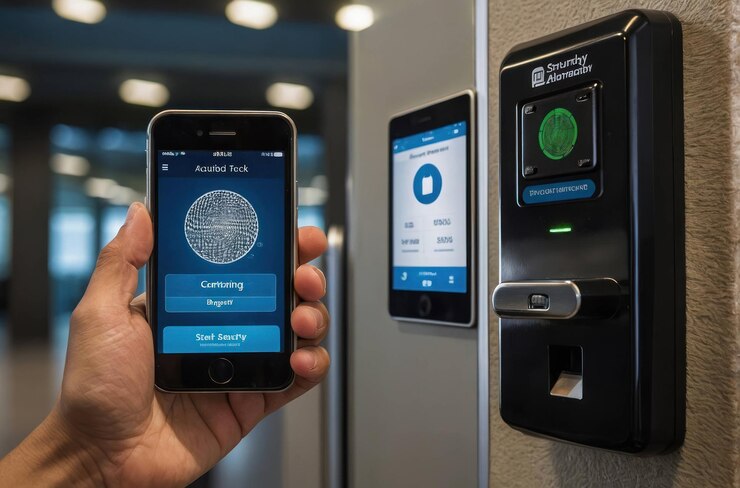Access Control Systems: Safeguarding Security in Dubai and Beyond

FAQs
1. What is an Access Control System (ACS)?
An Access Control System is a security solution that regulates and manages access to physical spaces, digital resources, or information systems. It employs various authentication mechanisms to verify the identity of individuals seeking entry and grants or denies access based on predefined permissions.
2. How does an Access Control System work?
Access Control Systems typically consist of several components, including authentication devices (such as card readers or biometric scanners), control panels or servers, and electric locks or physical barriers. When an individual seeks entry, they must authenticate themselves using a valid credential (such as a key card or biometric identifier). The system then verifies their identity and determines whether they have the necessary permissions to access the designated area.
3. What are the benefits of implementing an Access Control System?
Implementing an Access Control System offers several benefits, including:
- Enhanced security: By restricting access to authorized personnel and generating audit trails of access attempts, Access Control Systems help mitigate the risk of unauthorized entry and security breaches.
- Improved operational efficiency: Streamlining access workflows and automating authentication processes reduce administrative overhead and minimize disruptions to daily operations.
- Regulatory compliance: Access Control Systems facilitate compliance with regulatory requirements by providing detailed access logs and audit trails, which are essential for demonstrating compliance with data protection and security standards.
4. What are the different types of Access Control Systems?
Access Control Systems can be classified into several types based on their authentication mechanisms and deployment configurations. Common types include:
- Card-based access control: Users authenticate themselves using proximity cards, smart cards, or key fobs.
- Biometric access control: Users authenticate themselves using biometric identifiers such as fingerprints, iris patterns, or facial recognition.
- Networked access control: Access control panels are connected to a central server or network, enabling centralized management and monitoring of access permissions.
5. How can Access Control Systems be integrated with other security systems?
Access Control Systems can be integrated with other security systems such as surveillance cameras, intrusion detection systems, and alarm systems to create a comprehensive security ecosystem. Integration enables real-time monitoring and response to security events, enhances situational awareness, and improves overall security effectiveness.
6. What factors should be considered when selecting an Access Control System?
When selecting an Access Control System, organizations should consider factors such as:
- Security requirements: Assess the level of security needed for the environment and select a system that meets those requirements.
- Scalability: Choose a system that can accommodate future growth and expansion without requiring significant upgrades or replacements.
- User interface and usability: Select a system with an intuitive user interface and user-friendly features to simplify administration and usage.
- Integration capabilities: Ensure compatibility with existing security infrastructure and systems to facilitate seamless integration and interoperability.
7. How can organizations ensure the security and integrity of their Access Control Systems?
To ensure the security and integrity of Access Control Systems, organizations should implement best practices such as:
- Regularly updating firmware and software to patch vulnerabilities and address security flaws.
- Enforcing strong authentication measures, such as multi-factor authentication, to prevent unauthorized access.
- Implementing access controls and user permissions to limit access to sensitive areas and resources.
- Conducting regular security audits and assessments to identify and address potential security risks and vulnerabilities.
8. What role do Access Control Systems play in regulatory compliance?
Access Control Systems play a critical role in regulatory compliance by providing organizations with the means to enforce access controls, monitor access attempts, and generate audit trails of access activities. These capabilities are essential for demonstrating compliance with various regulatory requirements, including data protection laws, industry standards, and security regulations.
9. Can Access Control Systems be customized to meet specific security requirements?
Yes, Access Control Systems can be customized to meet specific security requirements and operational needs. Organizations adjust access policies, authentication methods, and user permissions to meet security goals. Access Control Systems integrate with third-party solutions for customized security measures.
10. What are some emerging trends and innovations in Access Control Systems?
Emerging trends and innovations in Access Control Systems include:
- Adoption of cloud-based access control solutions for greater scalability, flexibility, and remote management capabilities.
- Integration of artificial intelligence and machine learning algorithms to enhance authentication accuracy, detect anomalies, and automate security responses.
- Development of interoperable and standards-based access control systems to facilitate seamless integration with other security systems and devices.











